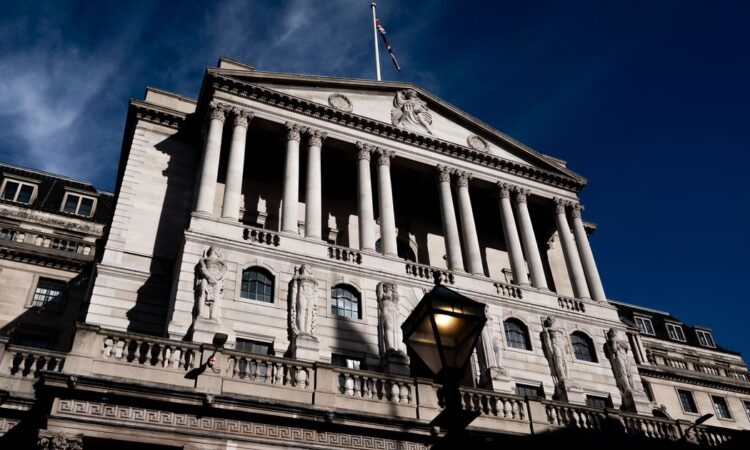
The UK’s Treasury Committee said the data showed a ‘staggering scale of unanticipated income high street banks are bringing in’ thanks to higher interest rates
Four of the UK’s largest banks have raked in over £9billion in interest from cash stashed at the Bank of England, a figure that’s more than doubled since last year, new figures reveal.
The Treasury Committee revealed the “staggering scale of unanticipated income high street banks are bringing in” due to soaring interest rates. In a bid to stimulate the economy post-2008 financial meltdown, the Bank of England spent £895 billion buying bonds, similar to a loan.
This financial injection was part of a strategy called quantitative easing, which essentially means the Bank creates extra money digitally as “central bank reserves”. Commercial banks hold onto these reserves and pocket interest on them.
With current UK interest rates perched at 5.25%, these reserves have become a lucrative source of income for banks, especially after rates began their ascent at the tail end of 2021. Back when interest rates low, the Bank of England’s payouts to major banks through these reserves were considerably less.
Amid this backdrop, MPs from the Treasury Committee have been leaning on UK banks to extend the boon of higher interest rates to savers, who stand to gain more from their deposits. The committee, tasked with keeping a watchful eye on the Treasury’s activities, acknowledged that there’s been some headway with banks improving the deals offered to savings account holders.
For instance, NatWest has rolled out a digital regular savings account offering a 6% interest rate, alongside a one-year fixed-rate account paying up to 4.6% interest. Santander is providing an easy-access savings account with a 7% interest rate on balances going up to £4,000.
The chair of the Treasury Committee, Dame Harriett Baldwin, said: “The committee has been very vocal about high street banks’ slowness on this issue. I am pleased to see some effort is being made to pass through competitive rates for our constituents and that consumers are shopping around more.”
“What this data also shows is the staggering scale of unanticipated income high street banks are bringing in, with no work required, as a result of increased interest rates. Although the committee raised a number of concerns about the losses now being incurred by quantitative easing and tightening, we concluded that the goalposts should not be moved for lenders now that bond sales are running at a loss.”





